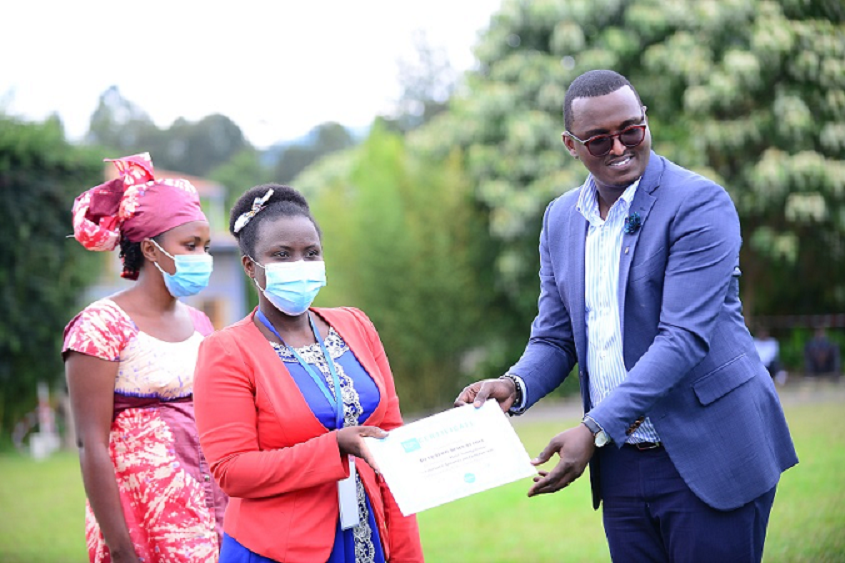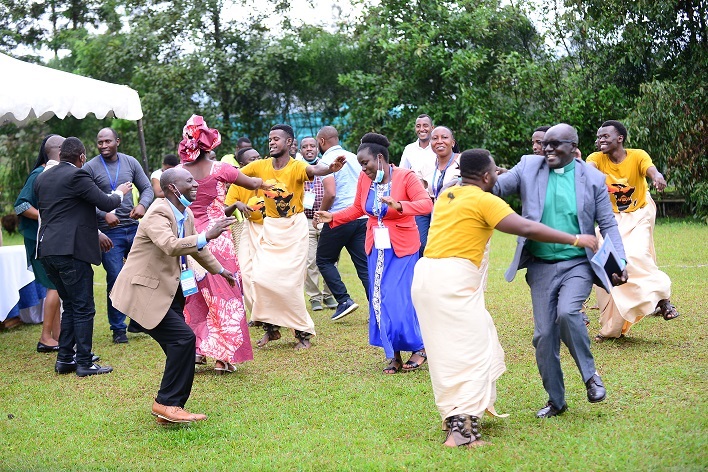A group of Rwandan agronomists recently graduated from a two-year master training course on conservation agriculture organized by Canadian Foodgrains Bank and Tearfund Canada.
The purpose of the initiative was to increase the ability of locally-based partners to provide wider and more effective conservation agriculture education in Rwanda. A new adult learning approach was developed to supplement existing materials.
Candidates for the training were selected by the partner organizations with input from Foodgrains Bank’s Agriculture and Livelihoods Technical Advisors.
“People with capacity for doing training, gender balance, who had previous experience with conservation agriculture and committed to training colleagues in their organization and individuals from other organizations were all considered,” explained Jean Twilingiyumukiza, Tearfund’s Agriculture and Livelihoods Technical Advisor for Central and West Africa.
The training was offered to 16 participants mostly from within the Canadian Foodgrains Bank network. Fourteen of the students graduated. The group was made up of five women, nine project field staff/agronomists from local organizations, two project managers, one member staff person and two government agronomists.
The initial plan for the master training course included four weeklong in-person training sessions followed by periods of practical implementation in the participants’ working areas. But due to COVID-19 restrictions, the four-month course ended up extending to two years, ending in April 2022. Facilitators adapted the course by organizing online check-ins, coaching sessions and field visits. The in-person sessions took place in four different districts including Musanze in northern Rwanda, Rwamagana in Eastern Rwanda and Karongi in western Rwanda.

Program participant Jacqueline Magnifique receives certificate from Tearfund country director Olivier Bizimana.
“This has already helped the trainees acquire the necessary knowledge, skills and practical experience on how to train conservation agriculture extension workers,” explained Twilingiyumukiza. “Right after graduation, we started getting positive feedback from partners highlighting positive changes and improvement on training methods and skills of the graduated master trainers.”
One of the graduates is Jacqueline Iradukunda, development director for Association des Eglises Baptites au Rwanda (AEBR), a locally-based partner of Canadian Baptist Ministries.
Iradukunda said the group learned conservation agriculture principles like minimum tillage, mulching, and crops rotation as well as weed control, manure use and crops spacing.
“It was a great opportunity,” she said. “And now I can apply what I’ve learned and share conservation agriculture skills with farmers and extensionists.”
Twilingiyumukiza is excited that the Rwandan government is now taking a keen interest in promoting conservation agriculture across the country.
“It is very likely the government will need lots of local supports to train many farmers, and this approach will be a good strategy for spreading conservation agriculture,” he said. “Going deeper in each district will require much more in-depth training and support and hopefully our master trainers will play a great role.”
This article was originally published in the Fall 2022 edition of Breaking Bread. Download your copy here.



